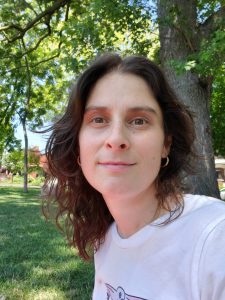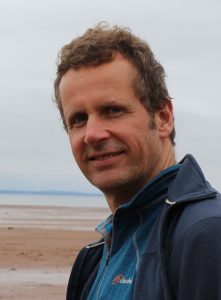Teaching About a Pandemic During a Pandemic
July 23/2020
By Heidi Singer
When the COVID-19 crisis hit Canada, professors from almost every part of the Dalla Lana School of Public Health came together on a mega-COVID course
In early April, as much of the world was deep in lockdown and universities scrambled to move online, DLSPH Prof. Blake Poland had an idea: why not offer a public health course on the emerging epidemic in real time?

Kira Kastner
“Everywhere I floated the idea it met with an enthusiastic response; it started to snowball,” says Poland, an associate professor in the Social and Behavioural Health Division. “In public health we’re not always transparent about what goes into decision making. This was an opportunity for students to study a crisis unfolding as they lived it.”
Poland began planning the class with Profs. Erica Di Ruggiero and Andrea Cortinois as well as the school’s educational technologist, Obadiah George. They found a student whose practicum had been cancelled to support course development. Within several weeks, they had signed on 24 guest faculty from almost every Division and discipline within the School — teaching 19 topics and offering 15 field segments by video directly from the front lines.
“I didn’t want it to be just about infection control and policy,” says Poland. “Those were important modules but I wanted it to address other dimensions including impacts on marginalized communities, migrant workers, ethics, and Indigenous perspectives. We drew from almost every Division and discipline in the School. Other than the IntroPHS course, I don’t think that’s happened before.”

Prof. Blake Poland
More than 30 students enrolled in Public Health Perspectives on COVID-19. They came from a range of DLSPH divisions, as well as social work, adult education, planning, and collaborative specializations in Community Development, Global Health, Indigenous Health, and Public Health Policy — adding to the rich mix of perspectives on the crisis. After realizing some of the students lacked the necessary grounding, Poland took a day to record lectures on public health fundamentals.
“As a student and collaborator, I really appreciated his willingness to be responsive to where students were at,” says Kira Kastner, the practicum student who helped develop the course.
Kastner, was finishing up her MPH in Social and Behavioural Health Sciences and preparing to do her practicum at a Toronto hospital when COVID derailed her plans. It was a relief to know she would finish her degree on schedule – and with such fascinating and relevant experience.
“It was surreal watching this unfold in real time around us and trying to communicate about it with classmates,” she recalls. “It was really important to us to be responsive to the current events as they shifted. When the Black Lives Matter demonstrations erupted globally, and anti-Black racism was declared a public health crisis in Toronto, we added that to the course. It was unusual from a student perspective to have faculty pivot to incorporate that so quickly.”
Kastner was drawn to the project because she knew it would have a strong equity angle.
“I had studied under Blake earlier this year in his community development course.,” she says. “Immediately when I saw his name on the posting I thought this is going to be an opportunity to work through COVID from a perspective that is very compelling to me.”
Poland has long sought to create spaces for different viewpoints in public health academia. He saw the emerging epidemic, without an established narrative attached to it, as fertile ground for such discussions.
“When people are deeply invested in their own world view, they think of it as the one main thing they want to champion and they don’t always see the advantage of bringing in other perspectives,” he says. “We were well positioned in Social and Behavioural Health, to do this course because we’re already coming at it with a reflexive orientation to the creation and mobilization of knowledge, an understanding of privilege and social location; that world view informs how we see everything; and what is counted as evidence. It makes us more inclined to invite in other perspectives, whether we agree or disagree.”
Kastner had wondered whether students would be able to focus on the course, given the disruption the pandemic caused. She was pleased with the level of engagement – and gratified at the positive reactions to the wide range of disciplines represented by guest lecturers.
“I absolutely think multidisciplinary learning is pragmatic and realistic to develop strong public health practitioners,” she says. “I think that’s what we do when we get to work, and our schooling could reflect that more often.”
Related information